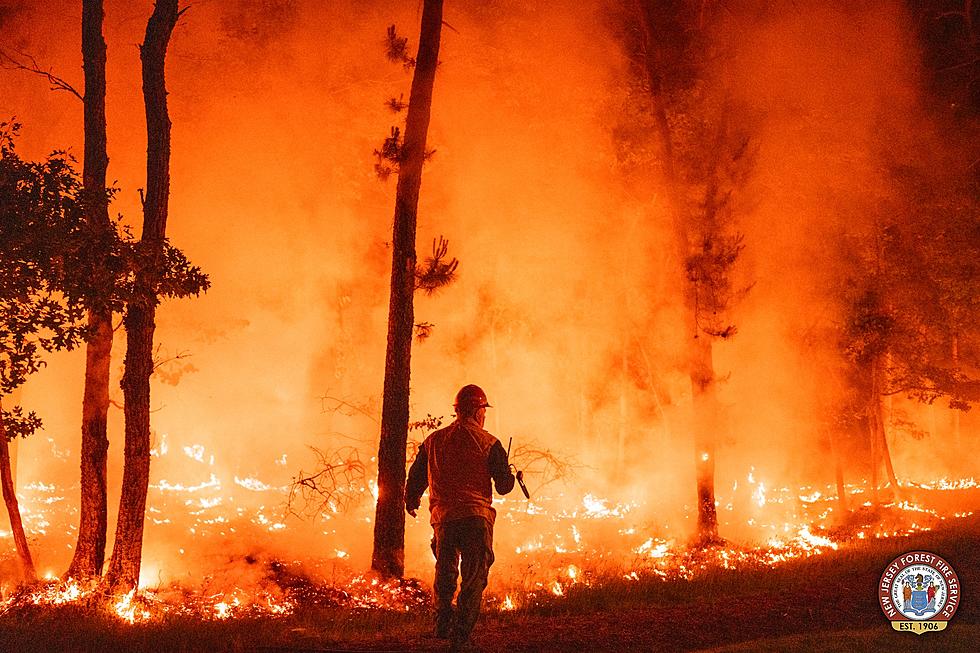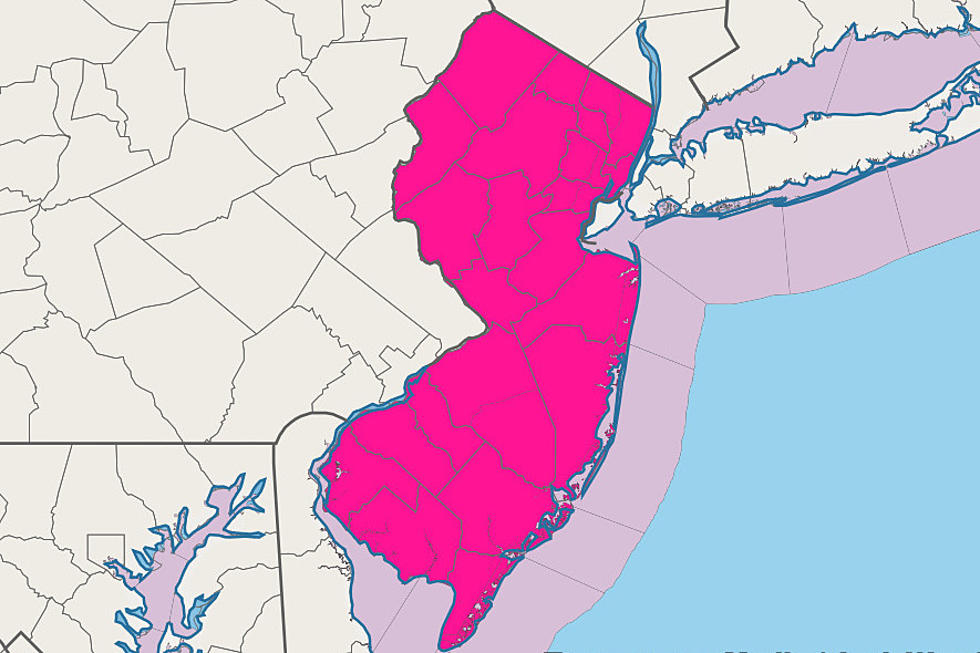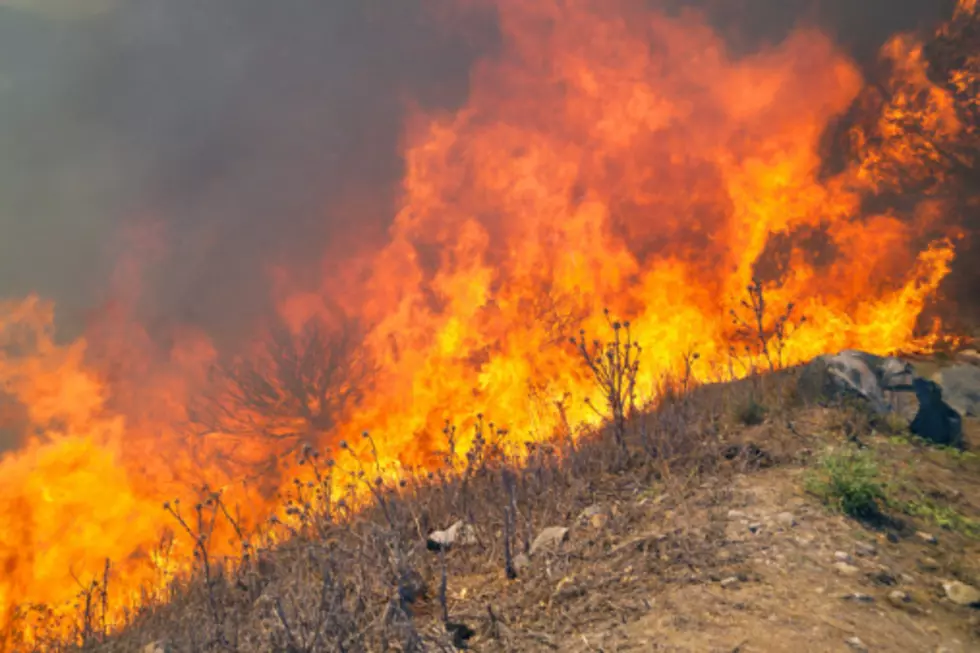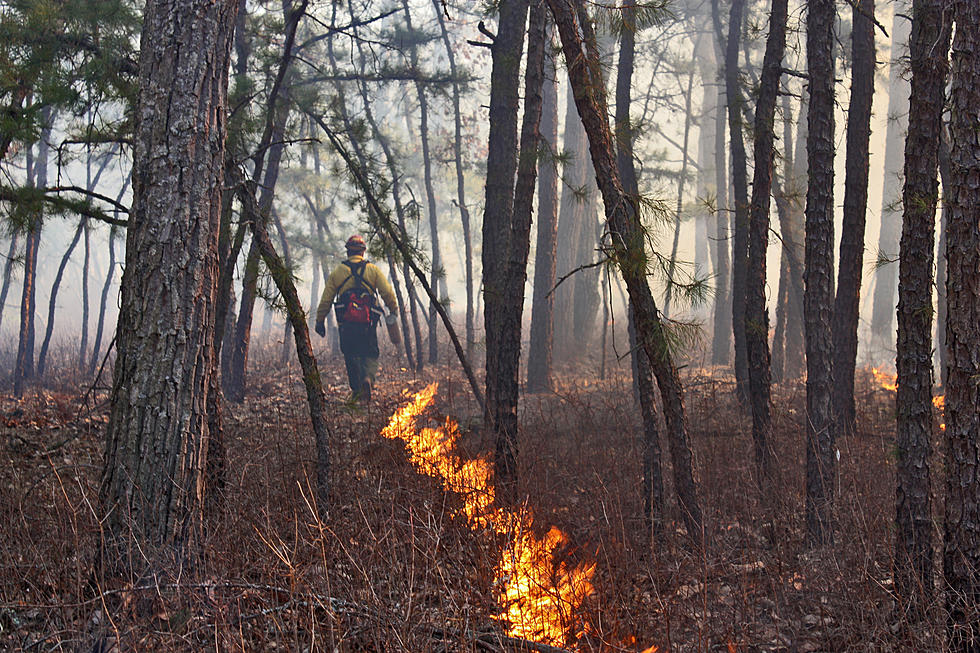
To prevent NJ wildfires, understand how they start and spread
It's peak wildfire season in New Jersey through May. Nearly all of the state's wildfires (99%) are caused by humans, through mostly accidents, said Gregory McLaughlin, the state fire warden and chief of New Jersey Forest Fire Service.
In 2020, the state Forest Fire Service responded to more than 1,000 wildfires, 12 of which were sparked by natural causes such as lightning. In total, those wildfires in New Jersey burned 4,796 acres of land last year.
So far in 2021, McLaughlin said the Forest fire Service has responded to 287 wildfires across the state, which burned approximately 451 acres.
He said people need to be careful when they're having fires, whether it's camp fires, backyard fires, cooking fires, cleaning out their wood stoves or their fireplaces.
Know the time of the year when peak wildfire season is in New Jersey (mid-March to May). Also, he said people need to pay attention to weather conditions. Lower humidity and high winds are prime wildfire weather conditions.
McLaughlin said during wildlife season, trees and bushes such as oaks and maples have not leafed out yet. This allows more sun to reach the forest floor and dry any fallen leaves and pine needles. The dry underbrush acts as kindling for wildfire growth.
Anything that is incendiary such as matches, cigarettes, dragging chains on a trailer, any ignition sources, are going to be effectively starting and spreading fires more easily.
The state tries to target a prevention message through schools with Smoky Bear to educate kids and teachers about the dangers of wildfires and the potential for wildfires. "We always feel that the easiest fire to put out is the fire that never starts," said McLaughlin.
Another prevention method used is the state's prescribed burning program. McLaughlin said that is when they'll use fire in a controlled and planned manner to reduce some of the fuels on the ground and some of that dry vegetation that will spread the fire from the forest floor into the treetops. That's what becomes what is called a "crown fire" and then an out-of-control wildfire.
"As we go through the season and people are outside more, and they're enjoying the outdoors and they're wanting to have their campfires, backyard fires, cooking fires, it's important for folks to know the time of year," said McLaughlin. Never leave fires unattended and be sure to douse them completely, until cold to the touch.
Always be sure to obtain the required permits for campfires from the nearest Forest Fire Service office.
He also said cooperation from the public is key to battling wildfires. If people are out and about and see firefighters on roadways working, he asked that everyone be respectful, avoid the areas as much as possible and allow the firefighters to work.
To learn more about wildfires in New Jersey, steps to protect property, and other resources, visit www.njwildfire.org.
DID YOU KNOW: New Jersey has a volcano!
More From New Jersey 101.5 FM









